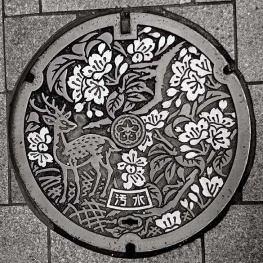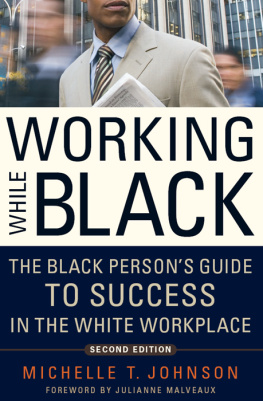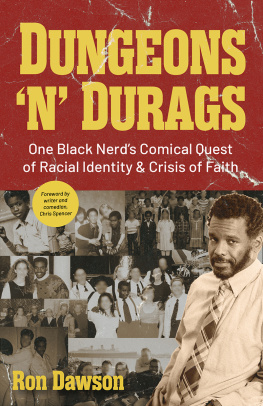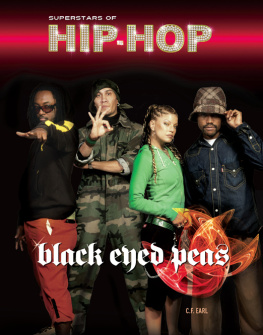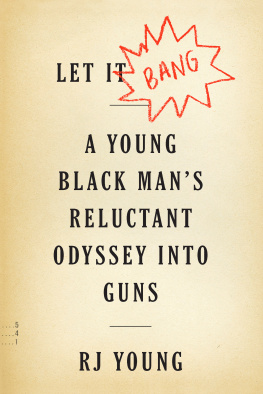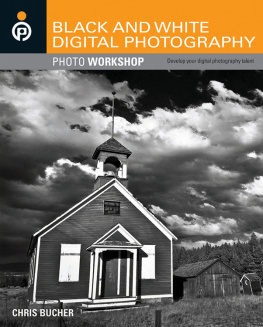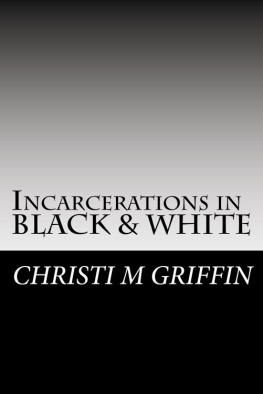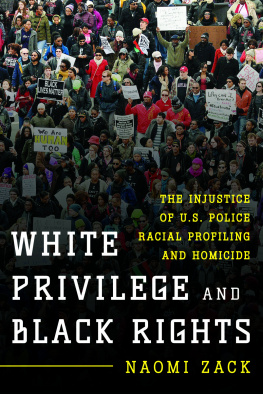Thank you for downloading this Scribner eBook.
Join our mailing list and get updates on new releases, deals, bonus content and other great books from Scribner and Simon & Schuster.
C LICK H ERE T O S IGN U P
or visit us online to sign up at
eBookNews.SimonandSchuster.com
We hope you enjoyed reading this Scribner eBook.
Join our mailing list and get updates on new releases, deals, bonus content and other great books from Scribner and Simon & Schuster.
C LICK H ERE T O S IGN U P
or visit us online to sign up at
eBookNews.SimonandSchuster.com
White Bucks and Black-Eyed Peas
Marcus Mabry
Scribner
New York Toronto Sydney London New Delhi
Scribner
1230 Avenue of the Americas
New York, NY 10020
www.SimonandSchuster.com
Copyright 1995 by Marcus Mabry
All rights reserved, including the right of reproduction in whole or in part in any form.
S CRIBNER and design are trademarks of Simon & Schuster Inc.
The names of some individuals, along with certain details about them, have been changed.
Designed by Songhee Kim
Library of Congress Cataloging-in-Publication Data
Mabry, Marcus, 1967
White bucks and black-eyed peas : coming of age black in white America / Marcus Mabry.
p. cm.
1. Mabry, Marcus, 1967-. 2. Afro-AmericansBiography. 3. United StatesRace relations. I. Title.
E185.97.M117A3 1995
305.8960730092dc20
96-16110 CIP
ISBN 0-684-19669-7
ISBN 978-1-4391-3143-5 (ebook)
F OR MY MOTHER AND MY GRANDMOTHER
I envied and I loathed John McEnroe. I wanted to act that way; but, I couldnt.
I wanted to [get angry]. I couldnt afford myself that luxury.
Having to live as a black person in America has been infinitely more challenging [than dying of AIDS].
ARTHUR ASHE
CONTENTS

ACKNOWLEDGMENTS

T HIS BOOK WOULD NOT HAVE been possible without my mother and my grandmotherfor obvious reasons. I thank them for their patience and their understanding as I told our business.
I also thank the readers who made this book this book, the friends who anchored and steered me through the experience; my father and my brother, whose strength, humor and love are always inspirational; my agent, Barbara Lowenstein, and the people at Lowenstein & Associates; my editor, Hamilton Cain, and the people at Scribner; and my editors and friends at Newsweek.
Most of all, I thank my teachers, especially Joel Greenberg, who told me when I was a happy-headed Second Former that I could paint my portrait of the artist as a young man.
PREFACE

I WAS BORN IN 1967. The year before martin luther king was assassinated. One of the riot years. I started school in the post-Civil Rights Era of the 1970s. For the eight years I was in high school, college and graduate school, Ronald Reagan was president of the United States. I belong to a class of African-Americans who came of age in the 1990s. I belong to that minority within a minority that is college-educatedand that minority within that minority that is male. We are almost a class unto ourselves: twenty-something, black, professional and bound for success.
We are both a testament to American opportunity and a bellwether of American turmoil. Our brief history has been one of contradictions and compromises. Individually, we have greater professional opportunities than any preceding generation of African-Americans. Yet, by many measures, black people collectively are worse off relative to white Americans today than they were before the Civil Rights revolution.
Part of a famously nonactivist generation, we helped push the U.S. Out of South Africa and pried open the canon of Great Works. Although we are the most assimilated and the most integrated black Americans ever, we seem to find true community only among ourselves. We seek to make it, but we want to stay black. We want white Americans to understand our culture, but not expect us to educate them: Its a Black Thang, You Wouldnt Understand. We want to be judged by a colorless standard, but we proudly affirm our racial identity.
As we have been trying to unearth the men and women we are, America has been trying to figure out what to make of us. While we have been learning to play the white corporate game, the rules have been in flux. Poll after poll has shown that while white Americans say there should be equality between the races, they believe that today it is white Americans who have less opportunity to find a good job or attend a first-rate college.
By the time we arrived, white Americans were already wondering if they had not given African-Americans too much. After college, companies hired us because of affirmative action, or merit. They promoted us because of quotas, or merit. And they resented us for being there.
Meanwhile, we have become increasingly separated from the masses of African-Americans, people who live in distant neighborhoods where we venture only for a haircut. Many of our parents had already worked their way into the middle, even upper middle, class. Many had not. Most of us who trickled up from the ghetto and into the buppie (black urban professional) elitethrough hard work, the remnants of government programs for the poor, or a combination of bothleft our mothers and fathers and brothers and sisters down there when we went off to good white schools and colleges.
We saw some of them slide deeper into the poverty pit as the post-industrial economy wiped out well-paying blue-collar jobs. We saw our old neighborhoods sink from being poor, but proud, into a numb despair, brooding and violent by turn. We saw the cohesion and solidarity fade from black America, as we broke into open class warfare between ourselves. Buppies loathing welfare mothers. Professionals crossing the street to avoid the brother on the sidewalk. And women wondering where all the men had gone.
Our generation never knew the America that had Grafted a rough consensus on racial equality or how to achieve it. Never buoyed by the hopes and promise of the Civil Rights Era, we were not disappointed when the dream was never realized. But the realization that despite our individual opportunity, the dream would never come true for most black people, made us cynical and pessimistic. While I was doing well, we were doing worse. And, yet, even the Talented Tenth had no abiding faith that tomorrow would be better.

My trek from AFDC to the Sorbonne is not meant to speak for all our experiences. No one person could; there are too many roads from there to here, even while there are too few. Each offers its own twists and turns, sacrifices, successes and sorrows. But like African-Americans of any generation when I speak of me, I have to speak on us. As much as blacks lament our unending travails in America, we, more than any others, are dependent on America for our very identity. This nation is not only the crucible of our suffering; it is the forge which bore us.
I cannot understand my present without exploring our past. White people often ask me how I escaped poverty when so many poor black males do not. I usually answer luck. I might add Uncle Sam with his Aid to Families with Dependent Children (AFDC), food stamps, Medicaid, Head Start, college grants and Perkins loansall of which benefited me. But if reasons to explain why I am an exception are needed, then the first two are my grandmother and my mother. One planted me firmly in this world. The other taught me to reach for the heavens. My grandmother rooted me in reality, through her staunch loyalty to an unjust existence and her faith that life was its own reward. My mother taught me the power of dreams through her endless pursuit of experience and wonder. My story is only their story come to fruition, the seed of three generations of African-American promise that, until me, for myriad reasons, failed to germinate.
Next page

